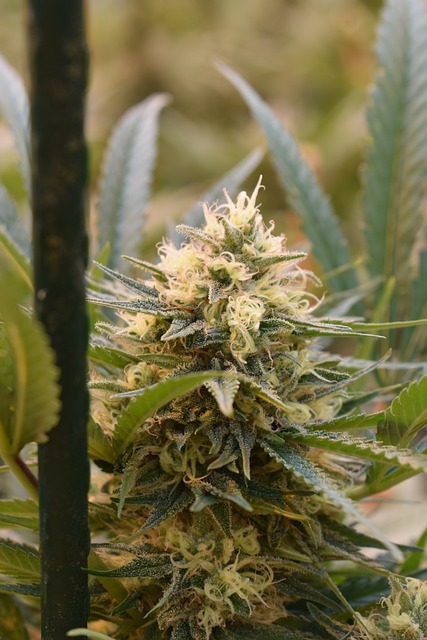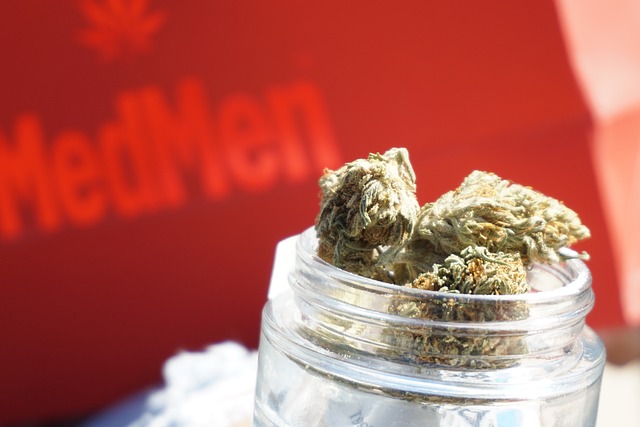thca legal in EU countries
THC Legal in EU Countries: Navigating the Complexities of Cannabis Legislation
Introduction
The debate surrounding the legalization of THC (tetrahydrocannabinol), the primary psychoactive compound in cannabis, has captivated European nations for over a decade. The European Union (EU), a political and economic powerhouse, has witnessed a gradual shift towards acknowledging the therapeutic potential of THC while navigating public health, safety, and legal considerations. This article delves into the intricate web of THC legality within EU countries, exploring its historical evolution, current status, and future prospects. By examining various aspects such as global trends, economic implications, technological advancements, policy frameworks, and real-world case studies, we aim to provide a comprehensive understanding of this dynamic landscape.
Understanding THC Legal in EU Countries
Definition and Core Components
THC legal in EU countries refers to the regulatory framework that governs the cultivation, distribution, and consumption of cannabis products containing THC within the member states of the European Union. This legislation encompasses a range of measures designed to ensure public safety, prevent misuse, and promote responsible use while acknowledging potential therapeutic benefits. The core components typically include:
- Licensing and Regulation: Strict licensing requirements for cannabis growers, processors, and distributors to ensure quality control and traceability.
- Age Restrictions: Setting a minimum legal age for purchasing and consuming THC products, often ranging from 18 to 21 years old.
- Content Limits: Imposing restrictions on the maximum THC concentration allowed in cannabis products to minimize potential adverse effects.
- Medical Access: Establishing clear guidelines for the prescription and use of medical cannabis containing THC for specific medical conditions under strict healthcare supervision.
- Research and Monitoring: Encouraging and funding research into the therapeutic benefits and risks associated with THC to inform policy decisions and improve patient outcomes.
Historical Context and Significance
The EU’s approach to THC legality has evolved over time, influenced by global trends, scientific advancements, and shifting public perceptions. Initially, cannabis was largely treated as a controlled substance across the bloc, aligned with international conventions like the Single Convention on Narcotic Drugs (1961). However, growing evidence of cannabis’s medicinal properties and changing social attitudes prompted a reevaluation.
A pivotal moment came in 2017 when the European Commission adopted a report highlighting the potential therapeutic benefits of cannabis and its derivatives, including THC. This led to a series of policy initiatives encouraging member states to review their legislation and consider a more nuanced approach. As a result, several EU countries began legalizing medical cannabis with THC for specific conditions, marking a significant shift in the region’s cannabis regulatory landscape.
Fit within the Broader Landscape
The EU’s framework for THC legality is integral to its broader approach to drug policy, which emphasizes harm reduction and public health. This contrasts with the more stringent approaches taken by some non-EU countries, focusing on strict control or criminalization. The EU’s multi-faceted strategy aims to strike a balance between access to potential therapeutic treatments and managing risks associated with cannabis use.
Global Impact and Trends
International Influence
The EU’s decision to explore THC legality has had a ripple effect globally, influencing cannabis policies in neighboring countries and beyond. Many regions have taken cues from the EU’s progressive approach, particularly regarding medical cannabis. For instance, Canada’s legalization of recreational cannabis in 2018 was partly inspired by the EU’s willingness to consider the therapeutic potential of THC.
Key Trends Shaping THC Legal Landscape
- Increasing Medical Cannabis Adoption: Many countries worldwide are following the lead of the Netherlands and Germany, which have long allowed medical cannabis with THC for specific conditions. This trend is driven by growing acceptance of cannabis-based medicines and a better understanding of their therapeutic benefits.
- Recreational Legality Gathering Momentum: Several US states and countries in Europe, like Uruguay and Portugal, have legalized recreational cannabis use, signaling a broader cultural shift towards embracing cannabis as a legitimate substance.
- Cross-Border E-Commerce: The rise of online platforms facilitates the cross-border sale of THC products, challenging traditional regulatory frameworks. This trend underscores the need for international cooperation to ensure product safety and prevent illegal trade.
- Research and Collaboration: Increased global collaboration in cannabis research, particularly between EU countries and their counterparts in North America and Asia, is leading to breakthroughs in understanding THC’s effects and potential applications.
Regional Variations
The global landscape of THC legality is characterized by stark regional differences:
- Europe: Leading the way in medical cannabis legalization, with countries like Germany (2017), the Netherlands (2019), and Italy (2019) among those that have implemented robust systems for THC-containing medical products. Some EU countries, such as France and Spain, have more stringent regulations, focusing primarily on low-THC cannabis for medical use.
- North America: Canada legalized recreational cannabis in 2018, becoming the first G7 nation to do so. The US has a patchwork of state-level legalizations, with some states allowing recreational use and others restricting it to medical purposes.
- Asia: Countries like Israel and Japan have progressive medical cannabis laws, while others maintain strict controls similar to traditional narcotic drugs.
- Australia and New Zealand: These regions generally maintain conservative stances on cannabis legalization but are increasing access to medical cannabis products containing THC.
Economic Implications
Market Potential and Growth
The global legal cannabis market is projected to reach USD 73.6 billion by 2027, growing at a CAGR of 24.3% from 2020 to 2027 (Grand View Research). Within the EU, the medical cannabis market has shown significant potential, with Germany leading the way in terms of revenue and patient numbers. The legalization of recreational cannabis in some member states could further drive market expansion.
Regulatory Considerations for Businesses
THC legality presents both opportunities and challenges for businesses within the EU:
- Opportunities: Legitimization opens doors to a vast market with growing demand for high-quality, safe THC products. It allows for innovation in product development, delivery methods (e.g., edibles, vapors), and therapeutic formulations.
- Challenges: Businesses must navigate complex regulatory environments across different member states, adhere to strict quality control standards, and manage cross-border trade while complying with varying laws.
Technological Advancements and Product Innovation
Extraction and Analysis Techniques
Advances in extraction methods have improved the purity and potency of THC products, enabling more precise dosing. Modern analytical techniques allow for accurate measurement of THC content, ensuring product safety and quality. These innovations are crucial for patient-centric formulations and addressing specific medical conditions.
Delivery Methods and Formulations
THC products have evolved beyond traditional smokeable forms to include:
- Edibles: Foods infused with THC, offering discreet consumption options but requiring precise dosing due to delayed onset of effects.
- Vaporizers: Heating THC extracts without combustion, providing faster delivery and a cleaner experience.
- Oral Sprays and Sublingual Tablets: These allow for rapid absorption, making them useful for treating acute symptoms or pain management.
- Topicals: Creams and salves containing THC for localized pain relief, avoiding systemic effects.
Digital Health Solutions
Technology plays a vital role in ensuring responsible use and monitoring patient outcomes:
- Digital Prescribing: Healthcare professionals can prescribe THC products digitally, improving access and tracking patient adherence.
- Mobile Apps: These apps enable patients to track their consumption, monitor side effects, and access educational resources, fostering personalized medicine.
- Telemedicine: Remote consultations with healthcare providers specializing in cannabis medicine expand accessibility, especially in rural areas.
Policy Frameworks and Implementation
Legal and Regulatory Oversight
Ensuring THC legality within the EU involves a complex interplay of national and supranational regulations:
- National Laws: Each member state has its own legislation governing cannabis, with varying degrees of stringency. National laws dictate cultivation, possession, and use provisions.
- EU Regulations: The EU’s Narcotic Drugs Directive (2005) sets out the framework for controlling narcotic drugs, including THC, across all member states. This directive ensures consistency in classification, production, and trade.
- Court Rulings: European courts play a crucial role in interpreting and applying these regulations, shaping the legal landscape over time.
Recent Developments and Initiatives
- European Medicines Agency (EMA) Guidance: In 2020, the EMA issued guidance on the quality, safety, and efficacy of cannabis-based medicines, providing a framework for member states to regulate such products.
- EU Cannabis Research Program: Funded by the Horizon Europe program, this initiative aims to advance research into the therapeutic potential of cannabis, including THC, while ensuring product safety.
- Cross-Border Cooperation: EU countries are collaborating on cross-border surveillance, data sharing, and harmonization of national laws to combat illegal cannabis trade and ensure patient safety.
- Industry Self-Regulation: Some industry players have formed associations to promote responsible practices, product quality, and consumer education, filling potential gaps in regulatory oversight.
Real-World Case Studies
Germany: A Model for Medical Cannabis
Germany’s medical cannabis program, implemented in 2017, stands out as a success story within the EU. The country has one of the most generous regulations, allowing access to THC products for patients with various conditions, including multiple sclerosis, epilepsy, and chronic pain. The German Federal Institute for Drugs and Medical Devices (BfArM) oversees a robust system for product authorization and quality control.
Key factors contributing to Germany’s success:
- Comprehensive Patient Access: Patients can obtain THC products through specialized pharmacies or online, with no need for costly specialist consultations.
- High-Quality Products: Stringent regulations ensure the availability of high-quality, pharmaceutically produced cannabis medicines.
- Data-Driven Policy: The German approach leverages data on patient outcomes and product safety to inform policy decisions, allowing for continuous improvement.
Portugal: Decriminalization and Patient Access
Portugal’s approach to cannabis decriminalization has led to unique outcomes regarding public health and patient access. While cannabis remains illegal under the country’s drug laws, possession for personal use is not prosecuted, and medical cannabis is legal. This framework allows patients to access THC products through specialized pharmacies without criminal penalties.
Benefits of Portugal’s model:
- Reduced Stigma: Decriminalization has contributed to reduced stigma associated with cannabis use, fostering open dialogue and better public health outcomes.
- Patient Safety: The legal framework ensures product quality and safety, as pharmacies must meet strict regulations for sourcing and dispensing THC products.
- Research Opportunities: Portugal’s unique legal status has attracted researchers, leading to valuable studies on cannabis medicine and patient outcomes.
Challenges and Considerations Moving Forward
Public Perception and Misinformation
Despite growing acceptance, THC remains a controversial substance, often surrounded by misinformation. Public education initiatives are crucial to dispel myths, promote responsible use, and address concerns related to potential health risks.
Research Gaps and Evidence-Based Policies
While research into cannabis medicine has advanced, more high-quality studies are needed to understand long-term effects, optimal dosing, and interactions with other medications. Evidence-based policies should guide THC regulations to ensure patient safety and maximize therapeutic benefits.
Global Harmonization and Trade
Ensuring fair trade practices and product availability across borders remains a challenge. Harmonizing global standards for cannabis products, including THC, could facilitate international cooperation and patient access worldwide.
Conclusion
THC legality within the EU is a dynamic and evolving landscape, influenced by scientific advancements, changing public attitudes, and policy innovations. As the medical and recreational cannabis markets expand, continued collaboration between governments, researchers, industry leaders, and patients will be essential to shape a responsible and regulated environment that maximizes THC’s therapeutic potential while mitigating risks.












